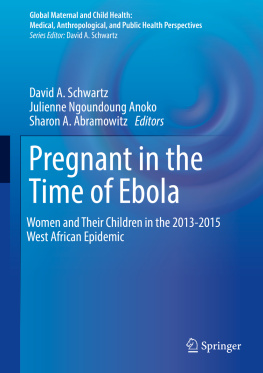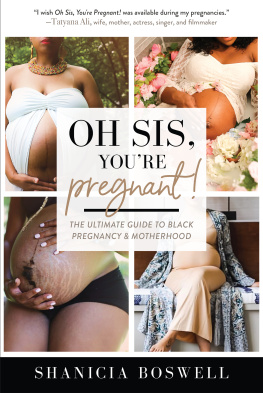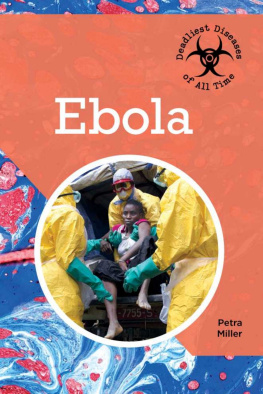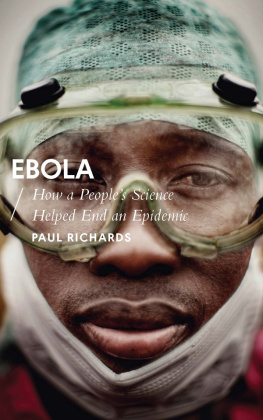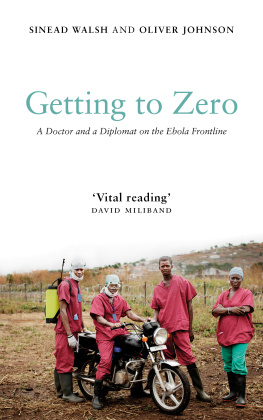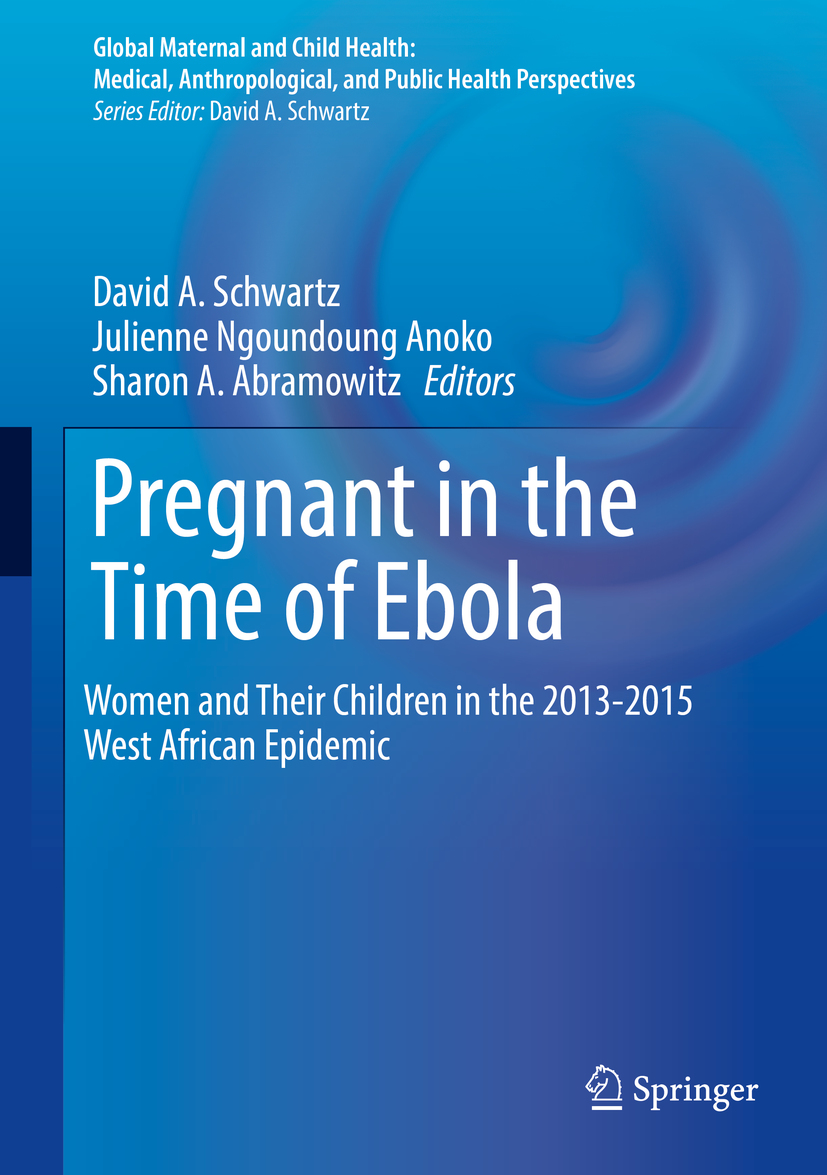Global Maternal and Child Health Medical, Anthropological, and Public Health Perspectives
Series Editor
David A. Schwartz
Department of Pathology, Medical College of Georgia, Augusta University, Augusta, GA, USA
Global Maternal and Child Health: Medical, Anthropological, and Public Health Perspectives is a series of books that will provide the most comprehensive and current sources of information on a wide range of topics related to global maternal and child health, written by a collection of international experts.The health of pregnant women and their children are among the most significant public health, medical, and humanitarian problems in the world today. Because in developing countries many people are poor, and young women are the poorest of the poor, persistent poverty exacerbates maternal and child morbidity and mortality and gender-based challenges to such basic human rights as education and access to health care and reproductive choices. Women and their children remain the most vulnerable members of our society and, as a result, are the most impacted individuals by many of the threats that are prevalent, and, in some cases, increasing throughout the world. These include emerging and re-emerging infectious diseases, natural and man-made disasters, armed conflict, religious and political turmoil, relocation as refugees, malnutrition, and, in some cases, starvation. The status of indigenous women and children is especially precarious in many regions because of ethnic, cultural, and language differences, resulting in stigmatization, poor obstetrical and neonatal outcomes, limitations of womens reproductive rights, and lack of access to family planning and education that restrict choices regarding their own futures. Because of the inaccessibility of women to contraception and elective pregnancy termination, unsafe abortion continues to result in maternal deaths, morbidity, and reproductive complications. Unfortunately, maternal deaths remain at unacceptably high levels in the majority of developing countries, as well as in some developed ones. Stillbirths and premature deliveries result in millions of deaths annually. Gender inequality persists globally as evidenced by the occurrence of female genital mutilation, obstetrical violence, human trafficking, and other forms of sexual discrimination directed at women. Many children are routinely exposed to physical, sexual, and psychological violence. Childhood and teen marriages remain at undesirably high levels in many developing countries.
Global Maternal and Child Health: Medical, Anthropological, and Public Health Perspectives is unique in combining the opinions and expertise of public health specialists, physicians, anthropologists and social scientists, epidemiologists, nurses, midwives, and representatives of governmental and non governmental agencies to comprehensively explore the increasing challenges and potential solutions to global maternal and child health issues.
More information about this series at http://www.springer.com/series/15852
Series Editorial Advisory BoardSeverine Caluwaerts, M.D., Mdecins Sans Frontires/Doctors Without Borders, Operational Centre, Brussels; and Obstetrician-Gynecologist, Institute for Tropical Medicine, Antwerp, Belgium
Sheila Cosminsky, Ph.D., Associate Professor of Anthropology (retired), Rutgers University, Camden, NJ, USA
Morgan Hoke, Ph.D., Assistant Professor of Anthropology, University of Pennsylvania, Philadelphia, PA, USA
Regan Marsh, M.D., M.P.H., Attending Physician, Brigham and Womens Hospital; Instructor, Department of Emergency Medicine, Harvard Medical School; Affiliate Faculty, Division of Global Health Equity, Department of Medicine, Harvard Medical School; and Partners in Health, Boston, MA, USA
Joia Stapleton Mukherjee, M.D., Associate Professor of Medicine; Associate Professor of Global Health and Social Medicine, Department of Global Health & Social Medicine, Harvard University School of Medicine; and Partners in Health, Boston, MA, USA
Adrienne E. Strong, Ph.D., Certificate in Women, Gender and Sexuality Studies, Assistant Professor of Anthropology, Department of Anthropology, University of Florida, Gainesville, FL, USA
Deborah A. Thomas, Ph.D., R. Jean Brownlee Term Professor of Anthropology, Interim Director, Gender, Sexuality and Womens Studies, University of Pennsylvania, Philadelphia, PA, USA; and Editor-in-Chief, American Anthropologist
Claudia Valeggia, Ph.D., Professor of Anthropology (Biological Anthropology), Department of Anthropology, Yale University, New Haven, CT, USA
Nynke van der Broek, Ph.D., F.R.C.O.G., D.T.M. & H., Head of the Centre for Maternal and Newborn Health, Professor of Maternal and Newborn Health, Honorary Consultant Obstetrician and Gynaecologist, Liverpool School of Tropical Medicine, Liverpool, UK
Editors
David A. Schwartz
Department of Pathology, Medical College of Georgia, Augusta University, Augusta, GA, USA
Julienne Ngoundoung Anoko
University of Rene Descartes Paris V La Sorbonne, Paris, France
Sharon A. Abramowitz
Department of Anthropology, Rutgers University, New Brunswick, NJ, USA
ISSN 2522-8382 e-ISSN 2522-8390
Global Maternal and Child Health
ISBN 978-3-319-97636-5 e-ISBN 978-3-319-97637-2
https://doi.org/10.1007/978-3-319-97637-2
Library of Congress Control Number: 2018959098
Springer Nature Switzerland AG 2019
This work is subject to copyright. All rights are reserved by the Publisher, whether the whole or part of the material is concerned, specifically the rights of translation, reprinting, reuse of illustrations, recitation, broadcasting, reproduction on microfilms or in any other physical way, and transmission or information storage and retrieval, electronic adaptation, computer software, or by similar or dissimilar methodology now known or hereafter developed.
The use of general descriptive names, registered names, trademarks, service marks, etc. in this publication does not imply, even in the absence of a specific statement, that such names are exempt from the relevant protective laws and regulations and therefore free for general use.
The publisher, the authors, and the editors are safe to assume that the advice and information in this book are believed to be true and accurate at the date of publication. Neither the publisher nor the authors or the editors give a warranty, express or implied, with respect to the material contained herein or for any errors or omissions that may have been made. The publisher remains neutral with regard to jurisdictional claims in published maps and institutional affiliations.
This Springer imprint is published by the registered company Springer Nature Switzerland AG
The registered company address is: Gewerbestrasse 11, 6330 Cham, Switzerland

